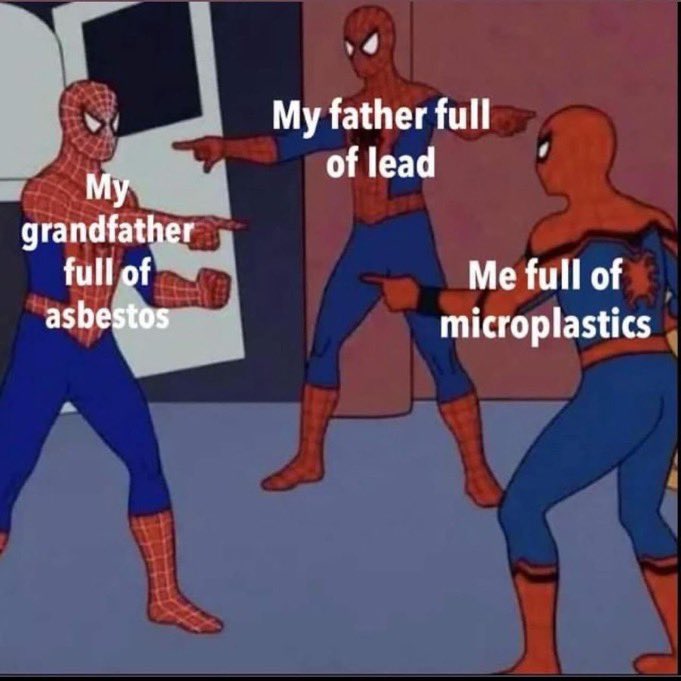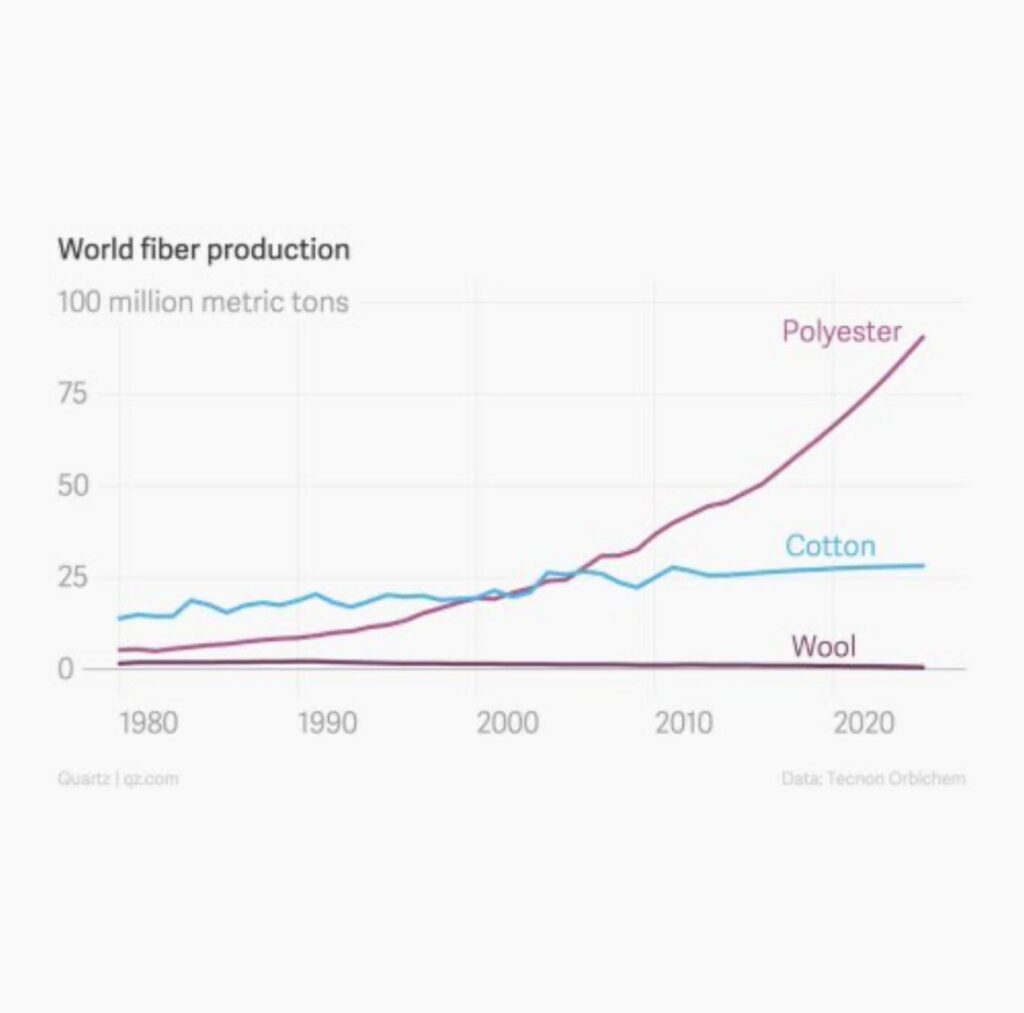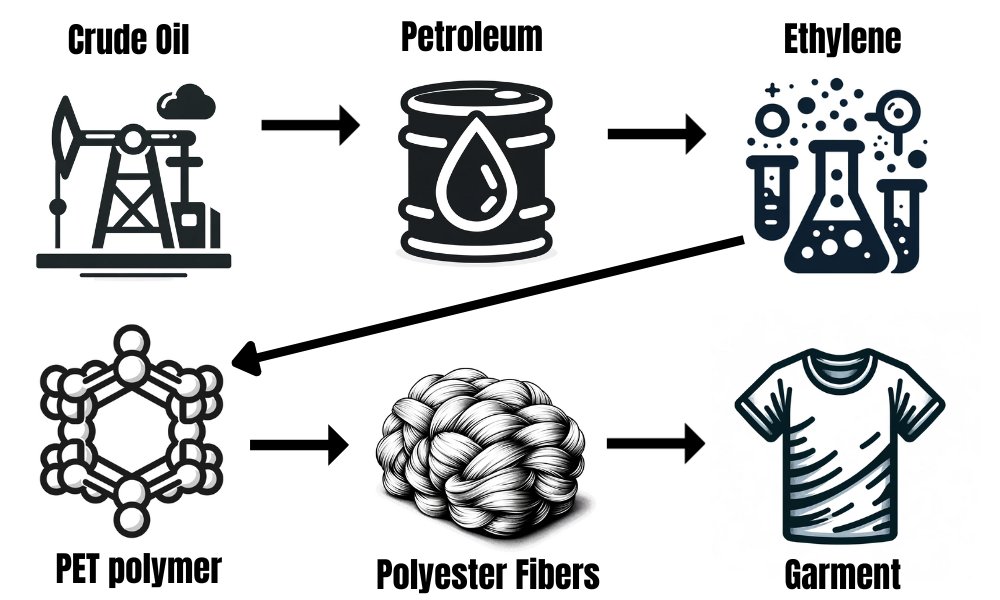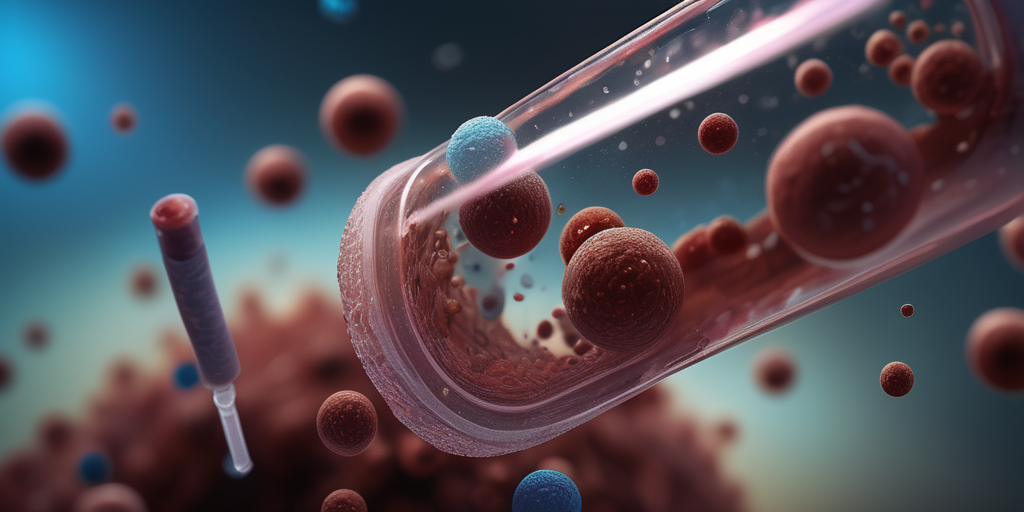The issue of microplastics has gained increasing attention as a major health concern. These tiny plastic particles, which originate from the breakdown of larger plastic items, have been found in various ecosystems and even in the human body. One alarming discovery is the presence of microplastics in male testicles, with polyester underwear being identified as one of the culprits.
We are constantly surrounded by synthetic materials that promise us convenience, affordability, and durability. One such material is polyester, a synthetic petroleum-based plastic that is widely used in the textile industry. While it may be a cheaper alternative to natural fibers, polyester comes with a host of hidden dangers that can have serious consequences for our health.
Polyester and other synthetic textiles, such as acrylic, nylon, and spandex, are created using a combination of petroleum, acids, alcohol, and various other chemicals, many of which are known to be endocrine disruptors, flame retardants, and even carcinogens. These toxic substances can cause a range of health issues, from skin irritation and allergic reactions to hormonal imbalances and reproductive problems.
Polyester allergy, for example, is a form of contact dermatitis caused by the chemicals used in the production of the fabric. This can result in redness, itching, and inflammation on the skin, particularly in areas where the fabric comes into direct contact with the body. Moreover, polyester underwear has been linked to diminished spermatogenesis, as the “electrostatic field” created by the fabric can potentially disrupt testicular and epididymal function.

Microplastics in the male reproductive system can have a range of negative effects, including reduced sperm count, impaired sperm motility, and increased oxidative stress. These factors can contribute to infertility and decreased testosterone levels, which have been linked to various health issues, such as depression, decreased muscle mass, and reduced bone density.

Polyester is also made from petroleum-derived precursors like ethylene glycol and terephthalic acid, which are toxic and carcinogenic. To make polyester flame-retardant, brominated flame retardants (BFRs) like polybrominated diphenyl ethers (PBDEs) are added during manufacturing. These BFRs are persistent, bioaccumulative, and toxic, linked to neurobehavioral effects, endocrine disruption, cancer, and other diseases.Other synthetic fibers also involve hazardous chemicals. Acrylic is made from acrylonitrile, a probable human carcinogen. Nylon production uses chemicals like adipic acid, which can disrupt the endocrine system. Spandex involves the use of isocyanates, which are respiratory sensitizers and potential carcinogens
Aside from the direct health risks associated with wearing polyester, the fabric also poses an environmental threat. When polyester is heated, such as in a clothes dryer, it releases toxic chemicals into the air, which can contribute to indoor air pollution and negatively impact the health of those who breathe it in.

So, what can we do to protect ourselves from the dangers of polyester and other synthetic textiles? The answer lies in choosing clothing made from natural, plant or animal-derived fibers, such as cotton, bamboo, linen, wool, silk, hemp, fur, and leather. These materials are not only better for our health, but they are also more sustainable and environmentally friendly.
Natural fibers, unlike polyester, are excellent at absorbing water and wicking away sweat and heat, making them more comfortable to wear. Additionally, they are biodegradable and can be easily recycled, reducing the amount of waste that ends up in landfills and oceans.
In addition to choosing clothing made from natural or eco-friendly materials, there are several other steps we can take to reduce our exposure to toxic chemicals and promote a healthier lifestyle:
- Wash new clothes before wearing them: This can help remove any residual chemicals from the manufacturing process and reduce the risk of skin irritation or allergic reactions.
- Avoid wearing synthetic fabrics in hot or humid conditions: Natural fibers are better at wicking away sweat and heat, making them more comfortable to wear in these conditions.
- Choose natural or organic bedding and upholstery: This can help reduce your exposure to toxic chemicals in your home environment.
As the issue of microplastics continues to gain attention, many people are seeking ways to detoxify their bodies from these harmful particles. While it may not be possible to eliminate microplastics entirely, there are several steps you can take to reduce your exposure and minimize their impact on your health.
- Choose natural, eco-friendly clothing: Opt for clothing made from natural fibers, such as cotton, linen, wool, silk, hemp, fur, and leather, to reduce your exposure to synthetic materials that can shed microplastics. Be particularly vigilant when selecting underwear, as this is a common source of microplastic contamination.
- Filter your drinking water: Install a high-quality water filter in your home to remove microplastics and other contaminants from your drinking water. This can help reduce your exposure to these harmful particles and promote overall health and well-being.
- Eat a balanced, whole-foods diet: Consuming a diet rich in whole, unprocessed foods can help support your body’s natural detoxification processes and minimize your exposure to microplastics and other toxins. Prioritize fruits and lean proteins–in particular grass-fed beef, and avoid processed foods that may contain synthetic additives and preservatives.
- Engage in regular exercise: Exercise can help support your body’s natural detoxification processes by promoting circulation, lymphatic drainage, and the elimination of toxins through sweat. Aim for at least 30 minutes of moderate-intensity exercise most days of the week.
- Practice stress reduction techniques: Chronic stress can impair your body’s ability to detoxify itself, so it is essential to prioritize stress reduction techniques, such as reading, deep breathing, walking, or prayer. These practices can help support your overall health and well-being and make it easier for your body to eliminate toxins, including microplastics.
- Consider detoxification supplements: There are several supplements available that claim to support the body’s natural detoxification processes, such as milk thistle, dandelion root, and activated charcoal. While more research is needed to determine their effectiveness, these supplements may be worth considering as part of a comprehensive approach to detoxifying your body from microplastics.
As we strive to rebuild Christendom and restore the moral and cultural foundations of our society, it is crucial that we remain vigilant against the many ways in which our enemies seek to poison and weaken us. From the infiltration of toxic chemicals in our food and clothing to the relentless assault on our minds and spirits through media and entertainment, we must be proactive in safeguarding our health and well-being.
By prioritizing our physical, mental, and spiritual health, we can ensure that we have the strength, resilience, and longevity necessary to carry out our mission and reclaim our rightful place as a Christian nation. Together, we can overcome the forces of darkness and establish a future rooted in faith, tradition, and the pursuit of God’s divine plan for our lives and our nation.
Let’s get to work.
Start by throwing out your polyester underwear.
To God Be The Glory
Andrew Torba
CEO, Gab.com
Christ is King






